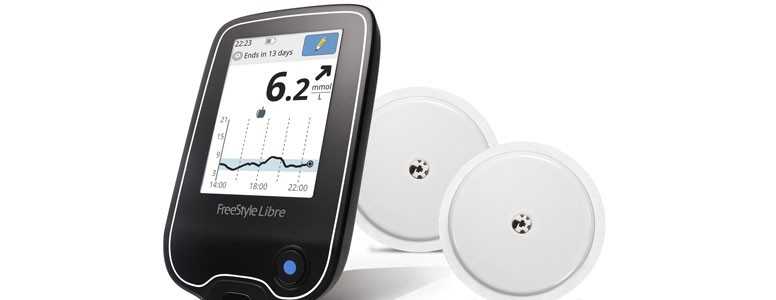A retired police officer with type 1 diabetes has spoken out after being denied use of the FreeStyle Libre flash glucose monitoring device.
As of November, use of the FreeStyle Libre technology will be available on the NHS to people with type 1 diabetes and type 2 diabetes who intensively use insulin. However, its availability will not be guaranteed for all patients and it is likely there will be a postcode lottery situation. Some clinical commissioning groups (CCGs) will be able to provide the Libre system to more patients than CCGs in other parts of the country.
Andrew Mills was “full of hope” after learning that the NHS Business Services Authority had approved the FreeStyle Libre on the Drug Tariff. This means it is available on the NHS subject to local approval. Andrew has been paying £57 out of his own pocket for each sensor. The sensors last for two weeks which represents a yearly cost of over £1,400.
However, Andrew has been denied the opportunity to have the sensors prescribed on the NHS by his CCG. Northumberland CCG responded that they will only be funding the FreeStyle Libre for certain groups of patients at the current time, including pregnant women at risk of severe hypoglycemia and people with type 1 diabetes experiencing dangerously erratic blood sugar levels.
Andrew is dismayed that such a life-benefitting system has been denied. He voiced his disappointment to ChronicleLive: “As well as avoiding fingerpricking, it gives you much better information about whether your levels are going up or down, and having better control over blood glucose levels will lead to far less expensive future complications.”
NHS Northumberland CCG’s clinical chair Dr Alistair Blair states that it won’t fund the FreeStyle Libre until more evidence is available that the Libre is effective in wider patient groups: “We are continuing to review this system to see whether there are more groups of patients who may benefit significantly from the system.”
It is disappointing that Northumberland CCG is choosing to only fund the use of the Libre for very specific groups. Andrew’s experience will likely be shared by many people over the coming weeks as CCGs in other areas of the country make decisions that will affect the lives of thousands of people with type 1 diabetes.
Diabetes.co.uk hopes that other CCGs will be more visionary and will allow more patients to make use of the new technology. If more patient groups are given the chance to use the Libre, then more evidence of effectiveness will therefore be available.
What's new on the forum? ⭐️
Get our free newsletters
Stay up to date with the latest news, research and breakthroughs.




